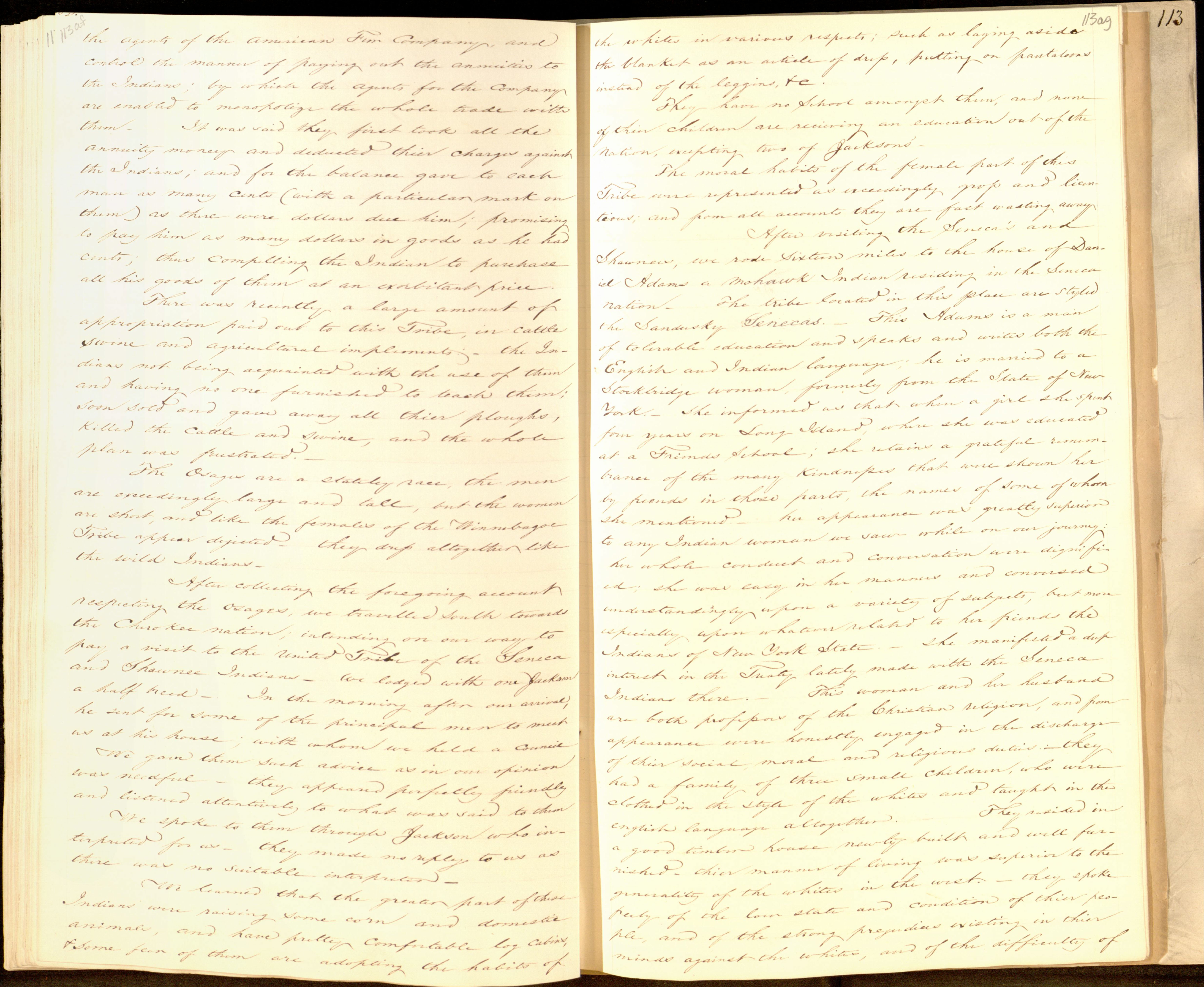the agents of the American Fur Company, and
control the
manner of paying out the annuities to
the Indians; by which the agents for
the Company
are enabled to monopolize the whole trade with
them. It
was said they first took all the
annuity money and deducted thier charges
against
the Indians; and for the balance gave to each
man as many
cents (with a particular mark on
them) as there were dollars due him;
promising
to pay him as many dollars in goods as he had
cents; thus
compelling te Indian to purchase
all his goods of them at an exorbitant
price.
There was recently a large amount of
appropriation paid out to this Tribe,
in cattle
swine and agricultural implements: the In-
dians not being
acquainted with the use of them
soon sold and gave away all thier ploughs,
killed the cattle and swine, and the whole
plan was frustrated.
The Osages
are exceedingly large and tall, but the women
are short, and like the females of the Winnebagoe
Tribe appear dejected--they dress altogether like
the wild Indians.
After collecting the foregoing account
respecting the Osages
the Cherokee
pay a visit to the United Tribe of the Seneca
and Shawnee
and half . In the morning men to meet
us at his house; with whom we held a council
We gave them such advice as in our opinion
was needful. They appeared
perfectly friendly
and listened attentively to what was said to them
We spoke to them through Jackson
terpreted for us. They made no reply to us as
there was no suitable interpretor.
We learned that the greater part of these
Indians were raising some corn and
domestic
animals, and have pretty comfortable log cabins,
& some
fear of them are adopting the habits of
the whites in various
respects; such as laying aside
the blanket as an article of dress, putting
on pantaloons
instead of the leggings, &c.
They have no School amongst them, and none
of thier children are recieving
an education out of the
nation, excepting two of Jacksons'.
The moral habits of the female part of this
Tribe were represented as
exceedingly gross and licen-
tious; and from all accounts they are fast
wasting away
After visiting the Seneca
Shawnees
iel Adams
nation. The tribe located in this place are
the Sandusky Senecas
of tolerable education and speaks and writes both the
English and Indian language; he is married to a
Stockbridge woman, formerly from the State of New
York
four years on Long Island
at a Friends School; she retains a grateful remem-
brance of the many kindness that were shown her
by friends in those parts, the names of some of whom
she mentioned--her appearance was greatly superiour
to any Indian woman we saw while on our journey:
her whole conduct and conversation were dignifi-
ed; she was easy in her manners and conversed
understanding upon a variety of subjects, but more
especially upon whatever related to her friends the
Indians of New York State
interest in the Treaty lately made with the Seneca
Indians there. This woman and her husband
are both professors of the Christian religion, and from
appearance were honestly engaged in the discharge
of thier social, moral and religious duties: they
had a family of three small children, who were
clothed in the style of the whites and taught in the
english language altogether. They resided in
a good timber house newly built and well fur-
nished--thier manner of living was superior to the
generality of the whites in the west. They spoke
freely of the lorn state and condition of thier peo-
ple, and of the strong prejudices existing in thier
minds against the whites, and of the difficulty of

